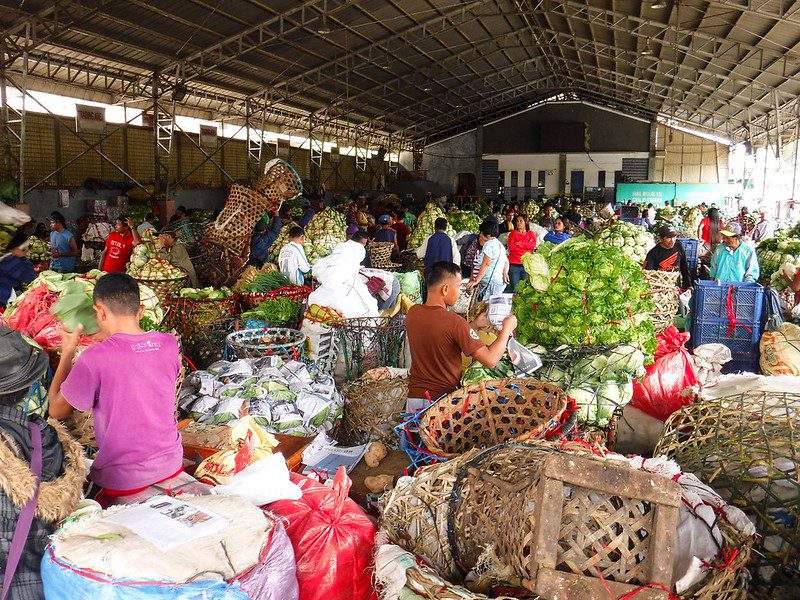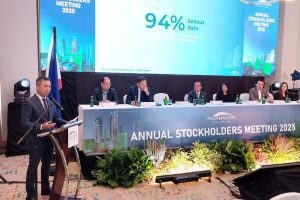MINERVA BC NEWMAN
CEBU CITY—The agriculture-food industry sector has contributed P6.1 trillion to the country’s Gross Domestic Products (GDP) and was responsible for the 42.7 percent of the entire workforce with 18 million jobs in 2019, making it the single most critical source of employment in the Philippine economy.
This is according to the findings of Oxford Economics’ latest report, “The Economic Impact of the Agri-Food Sector in South East Asia” which investigated the economic impact of the agri-food industry sector in the region.
The report said that the sector also contributed a total of P829.5 billion in tax revenues though the sector saw a four percent contraction in 2020 or P262.1 billion drops in GDP contribution as a result of the pandemic.
The economic report said that the agri-food industry sector is a significant driver of the country’s post-COVID-19 economic recovery, but supply and demand risks, fiscal measures, and a drawn-out pandemic could disrupt the recovery. The key driver for the country’s agri-food sector is F&B manufacturing that makes up 46 percent of the total agri-food sector’s contribution to GDP in the Philippines, the report added.
According to the report’s Economic Recovery Matrix, the Philippines placed second worst across 10 countries when it comes to the sector’s expected economic recovery from post COVID-19 fiscal adjustments, scoring higher than China, India, and other higher-income Asia economies.
This means that poorly crafted fiscal responses can have the potential of harming the agri-food sector’s recovery, impacting food security, income and employment, and economic opportunities.
The research was commissioned by Food Industry Asia (FIA) to better understand the challenges and economic impact of the agri-food sector faced in 2020 and the “Economic Impact of the Agri-Food Sector in South East Asia” report highlighted the sector’s role as the country’s driver in its economic recovery in terms of creating employment and putting food on the table at stable prices.
The Economic Recovery Matrix report said that the sector can expect the pandemic to continue to present challenges in economic recovery, however the country showed important vulnerabilities due to its dependence on tourism to revive its food industry.

Philippine Chamber of Food Manufacturers Inc. (PCFMI) Chairman and President Elizabeth de Leon-Lim, commenting on the findings said that given that uncertainties in international tourism continues into the near future, the agri-food industry needs to work closely with the Philippine government to identify other ways it can thrive in the new normal.
With the agri-food industry being instrumental to the national economy, it is critical that both the industry and the public sector come together to sustain and uplift the agri-food sector as the country moves forward into the rest of this year, de Leon-Lim said.
“The sector holds the key to over 18 million jobs and P6.1 trillion in GDP contribution and as such, is undeniably an economic powerhouse and an important driver of local employment opportunities,” de Leon-Lim added.
According to James Lambert, Director of Economic Consulting Asia, for Oxford Economics said that as the Philippines looks to emerge from the pandemic stronger, it is important that policymakers provide the most conducive conditions for the agri-food industry to successfully rebuild itself.
“And that any fiscal policy implemented is carefully planned, designed, and communicated to allow the industry to continue to provide the economic benefits it has delivered over recent decades,” he added.
Lambert noted that fiscal adjustments can include reducing public expenditure or raising tax revenues, which can pose a risk to the recovery of the Philippines’ agri-food sector, and subsequently the wider national economy.
Report’s recommendations
The report recommended that for governments to develop successful fiscal responses that do not inhibit the recovery of the agri-food industry, three conditions need to be met: using education to influence behavior; favoring regulatory standards over taxes; and maintaining a constant conversation with the industry.
FIA executive director Matt Kovac added that there is a need to also understand the current and future risk landscape before implementing measures to revive the economy post-COVID-19.
“The economic report has highlighted a range of substantial short-term and long-term challenges facing the agri-food sector in the Philippines, and it is crucial for policymakers to recognize and work around these risks,” Kovac noted.
Kovac stated that FIA will be utilizing the report’s insights to actively engage industry stakeholders, regulators, and policymakers to facilitate constructive and collaborative discussions that would support the agri-food sector’s contribution towards the Philippines’ recovery roadmap, ensuring that gains made in the industry are not lost during these challenging times.
Oxford Economics is one of the world’s foremost independent global advisory firms, providing reports, forecasts and analytical tools on 200 countries, 100 industrial sectors and over 3,000 cities.












